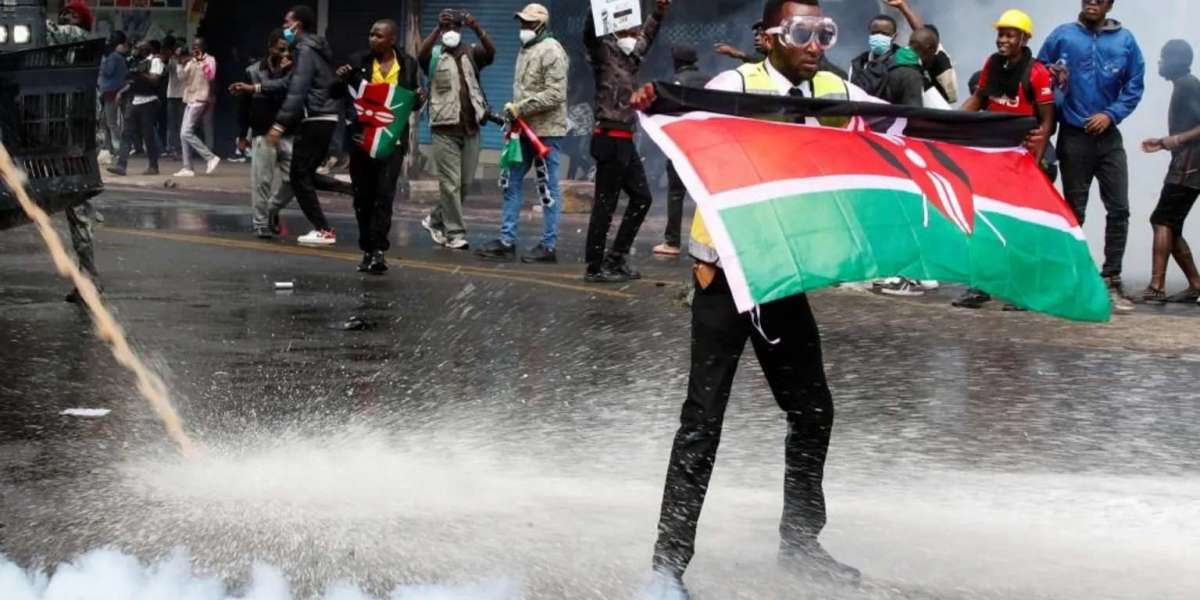The bustling megacity of Lagos was once again reminded of its vulnerability to heavy rainfall over the weekend as a three-hour downpour on Saturday triggered widespread flash floods. Residents in areas like Lekki, Ikoyi, and Lagos Island grappled with flooded streets and overflowing drains, igniting a fresh wave of discussions and concerns regarding the city's environmental challenges.
The swiftness and impact of the flooding quickly became a hot topic online, with many residents sharing their experiences and frustrations. However, the narrative took a sharp turn when Lagos State Commissioner for the Environment and Water Resources, Tokunbo Wahab, issued a strong rebuttal via his official X account.
Commissioner Wahab vehemently denounced what he described as a "deliberate effort by a handful of individuals to tarnish the reputation of Lagos State." His statement specifically targeted those who, having recently relocated to Lagos, were allegedly using their online platforms to spread "harmful narratives" aligned with "divisive agendas."
"It is regrettable that some who relocate from their home states in pursuit of better opportunities quickly, in less than a month or two, resort to disparaging the very state that has provided them with the platform to thrive," Wahab wrote, emphasizing the "progress and inclusivity that Lagos represents."
Adding fuel to the online discourse was a report from Lagos Island resident Michael Adeola, who claimed that parts of Isale Eko emitted a "smelly odor" as the floodwaters receded. Adeola stressed the urgent need for more robust measures to ensure a clean and safe environment for all Lagosians.
The debate further intensified following comments made by influencer Scott Iguma in a podcast interview, where he stated, "Lagos is smelling… There are a lot of big mosquitoes in Lagos." While Commissioner Wahab acknowledged the value of constructive criticism, he firmly condemned what he perceived as "malicious attempts to vilify a state that empowers countless lives daily."
Addressing Iguma directly, Wahab urged him to apply the same scrutiny to other states, concluding with a pointed, "Dear @IgumaScott, I do hope that you will put this same energy into ‘looking out’ for other states. I wish you all the best!"
The weekend's flash flood serves as a stark reminder of the weather patterns Lagosians are expected to navigate this year. During a Seasonal Climate Prediction (SCP) briefing in March, Commissioner Wahab had already cautioned residents to anticipate a significant rainfall average of 1,936mm in 2025, exceeding the 1991-2020 long-term average.
Wahab explained that the neutral phase of the El Niño-Southern Oscillation (ENSO) is likely to contribute to prolonged rains, a delayed cessation period, and an increased risk of extreme weather events, including strong winds. He specifically highlighted the expectation of above-normal rainfall during the first peak of the rainy season, with normal amounts anticipated in the second peak.
In response to these predictions, the Lagos State government has stated that it has intensified its flood control efforts, which include the crucial desilting of drainage systems across the state. The Ministry of Environment and Water Resources is also actively collaborating with the Nigerian Meteorological Agency (NiMet) to ensure the timely dissemination of weather updates and early warnings to the public.
Furthermore, residents are being urged to take personal responsibility by clearing any blocked drainage around their properties and adhering to flood safety guidelines to minimize potential risks during the ongoing rainy season.
The recent flash floods and the ensuing debate highlight the delicate balance between addressing genuine environmental concerns and fostering a sense of unity and progress within a diverse and dynamic city like Lagos. As the rainy season progresses, the effectiveness of the government's mitigation efforts and the cooperation of residents will be critical in navigating the challenges ahead.








